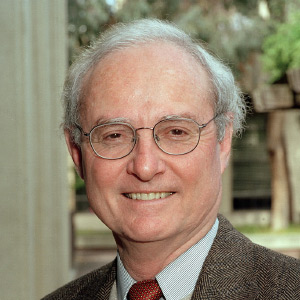The Venezuelan people have spoken: In their presidential election of last Sunday, some 45 percent favored the center-left opposition challenger Henrique Capriles to incumbent Hugo Chavez, who secured 55 percent of the vote.
As a top leader of the opposition remarked, while the election may have been clean, it was not fair. Prominent political commentator Teodoro Petkoff editorialized in the Caracas daily paper Tal Cual: “To win [Chavez] had to launch unscrupulously the full weight of the state against Capriles. He made use of public funds and facilities and institutions of public administration in an obscenely opportunistic campaign.” The good news was that Chavez’s tactics fully united the opposition. The bad news is that they were unable to clinch the election.
It is easy to tick off the failures of the Chavez government: corruption, cronyism, profligacy, food and other shortages, inefficiency, politicization, and electricity blackouts. Street crime is rampant. Though soaring oil revenues have earned Venezuela almost one trillion dollars during Chavez’s years, the country has an increasingly crippled private sector, the highest inflation rate in Latin America, declining reserves, rising debt, and often debilitating currency and price controls.
In July, Human Rights Watch published a detailed study entitled “Concentration and Abuse of Power in Chavez’s Venezuela,” which noted his regime’s many arbitrary attacks on the judiciary, the media, and human rights defenders. At best, much energy, hope, and money are devoted to policies that bring short-term relief to targeted groups at the long-term expense of those groups themselves and all others.
Why Did Chavez Win?
That Chavez could win so decisively, indeed at all, despite the huge failures of his government, draws attention to the complexities of democratic elections in Venezuela, and many other developing countries around the world.
The majority of Venezuelan voters concluded they have enough to gain from Chavez to give him six more years. His much-touted social welfare programs, though unevenly effective, are nonetheless very popular among the poor. Living standards have improved, as they have around much of Latin America, though their foundations are weak. Some like Chavez’s efforts to unite Latin America against the United States or have made small or large fortunes from business deals and corruption fed by Chavista crony-authoritarian populism.
The tragedy of Venezuela is that it has the potential in its people and resources to be one of the most prosperous nations in the world, but it has squandered that possibility, both before and after Chavez was first elected in 1998. Venezuela’s present and future challenges must be seen in the context of the entire region’s last 500 years, not just its recent history, which Chavez exploits to his advantage. Consider his analysis of Venezuela’s current state of affairs, its causes, and solutions, which has won him such broad support for fourteen years:
- Venezuela (and most of Latin America) is plagued by deep and seemingly intractable poverty and inequality.
- The United States and entrenched domestic elites and institutions are responsible for this.
- Chavez’s “21st Century Socialism” and a “communal state” are the only hope for the impoverished masses. (Chavez has said recently that with increasing socialization he should be able to finish the job by 2031.)
He is largely right on the first point, partly correct on the second, and dead wrong on the third, which I will focus on more here.
Exploitation, inequality, and poverty have characterized Latin America since pre-Columbian times. Since independence two centuries ago, most regimes have failed to respond seriously to popular needs. The president who immediately preceded Chavez was Rafael Caldera. The American Nobel economist Douglass North visited Caldera and ticked off the things he could do to improve Venezuela’s economy. Caldera responded: “If I were to do all the things you are recommending, I would not survive in office long enough to enjoy the benefits.”
Macroeconomic policy in Latin America has improved in recent decades, though least in Venezuela today. Furthermore, funds from exports of primary products usually have not been invested successfully in high quality reforms that would lay a foundation for sustainable growth.
The Appeal of Socialism
Thus “socialism” has often sounded good to the poor and frustrated. Chavez is a classic caudillo or strongman, indeed a Messiah, with a military background, who increasingly presents himself not only as the savior of Venezuela, but of all of humanity. On September 24, Reuters reported one of his election spiels: “I am no longer Chavez at this point, Chavez has become the people, we are all Chavez.” But the increasingly self-deifying authoritarian paternalist is serving corked wine in new bottles. It is a globalized version of the policies that, over the centuries, perpetuated devastating economic disparity in Latin America.
Chavez was elected in 1998 because many Venezuelans were deeply frustrated by the policies of the traditional democratic parties, including their inattention to national poverty. When I spoke with opposition political leaders in Caracas after the 2006 election, some said they deserved to lose because of their pre-Chavez record and their inability since then to unify and develop a persuasive response to Chavez’s challenge.
Capriles, who ran against Chavez this year, was the first opposition candidate to have no debilitating links to the discredited traditional parties. He presented a “Brazilian-style” center-leftist program that promised to retain critical Chavez social programs and reforms benefitting the poor and to return principles like the rule of law and market economics for all classes. Furthermore, Capriles is as young and dynamic as Chavez was when he dramatically came on the Venezuelan scene leading an abortive military coup just twenty years ago.
Oil: Chavez’s Wild Card
Chavez has been able to exercise his spell on so many Venezuelans because of oil, though he seems determined to kill the goose that lays the golden eggs. That is, he is supporting social programs by bleeding the state oil company PDVSA, which accounts for 95 percent of export revenues and 12 percent of the GDP.
Venezuela is now believed to have the largest or second-largest oil reserves in the world. But neglect of maintenance and development, and political hiring and firing have all contributed to a serious decline in production and plant safety. The U.S. Energy Information Administration reports that Venezuela’s petroleum exports have dropped by almost 50 percent since peaking the year before Chavez was elected.
With oil prices so high, even Venezuela’s heavy and sour crude is utilized and is a windfall that has given Chavez what seems to be untold wealth to pay for social programs, enable massive insider corruption, and give special deals to other countries. Without high oil prices, and enormous foreign investments and loans from Russia, Brazil, and especially China, Chavez would already be history.
But with oil Chavez has cleverly and demagogically manipulated democracy and popular frustrations to greatly expand the state’s role in the economy, weaken the courts and the rule of law, and eliminate or neutralize much of the media, though an enterprising candidate like Capriles was able to travel constantly to get much of his message out.
The electoral outcome proves, however, that Chavez effectively mined popular frustrations, hopes, and fears. He used the population’s ignorance of economics—including its belief that desirable programs and entitlements can be sustained by borrowing or bleeding PDVSA, not by production and real economic progress—to his advantage. Thus, Chavez is using democracy and voters to return Venezuela, step-by-step, to a varied but still recognizable version of its long authoritarian past, which is now manifesting itself as a sort of authoritarian crony populism.
But voters are also learning. In 1998 Chavez won over the second place candidate by a margin of 16 percent; in 2006, his margin peaked at 26 percent; and in 2012, it plummeted to 10 percent. In the last election Chavez, picked up about 600,000 more votes than in 2006 but Capriles increased the opposition tally by more than two million in the same span of time.
Chavez’s International Ambitions
The international consequences of Chavismo have been significant, but not in the way that the Venezuelan leader has wanted. In recent decades, all Latin American countries have become increasingly independent of the United States. This movement has nothing to do with Chavez, except that he has tried, usually unsuccessfully, to become the leader of Latin America and to make its policies more radical and grandiose. To some degree he has sponsored a “Chavista” wing of the Latin left, consisting mainly of Bolivia, Ecuador, and Nicaragua.
Chavez represents the most militant anti-U.S. movement in Latin America since the early Sandinistas, whose current government Chavez props up. But Chavez’s contemporary hero is Fidel Castro, whose decadent regime he also props up with discounted oil. Chavez has developed links to other countries around the world that are openly or potentially antagonistic to the United States and/or strong supporters of a multi-polar world. Russia has become heavily involved in selling arms to Venezuela while Chavez has admired and dealt with international thugs from Ahmadinejad and Assad to Carlos the Jackal. In some respects, Chavez’s closest foreign ally is China, which has loaned Venezuela more than $42 billion since 2007, most of the repayment to come in the form of oil.
If the opposition has really learned its lessons, Capriles will continue to lead and represent the opposition as the country moves on to state governor elections in December and mayoral elections in April 2013. Prospects are good in many places: no Chavista candidate has anything like the charisma of Chavez himself. Indeed, the ultimate irony might be that Capriles will be the most viable successor to Chavez should the latter be taken out by his never fully disclosed cancer. Capriles has much to offer both of the currently warring sides, not least reconciliation.
During the campaign, Chavez had obliquely threatened the middle class and rich, suggesting they too should vote for him since only he could guarantee national stability. When Capriles conceded the election, Chavez made some conciliatory noises. But he is certain to regard his victory as a landslide and press ahead with his plans to implement 21st Century Socialism, digging Venezuelans into a still deeper hole to have to climb out of in the future.
Some anti-Chavistas say privately that they might as well be satisfied that Capriles lost this time since he would have had an impossible job. For now, the opposition will work on winning the December elections, trying to prevent more violent polarization even as they prepare to pick up the pieces if Chavez insists on pushing the country over the edge.








